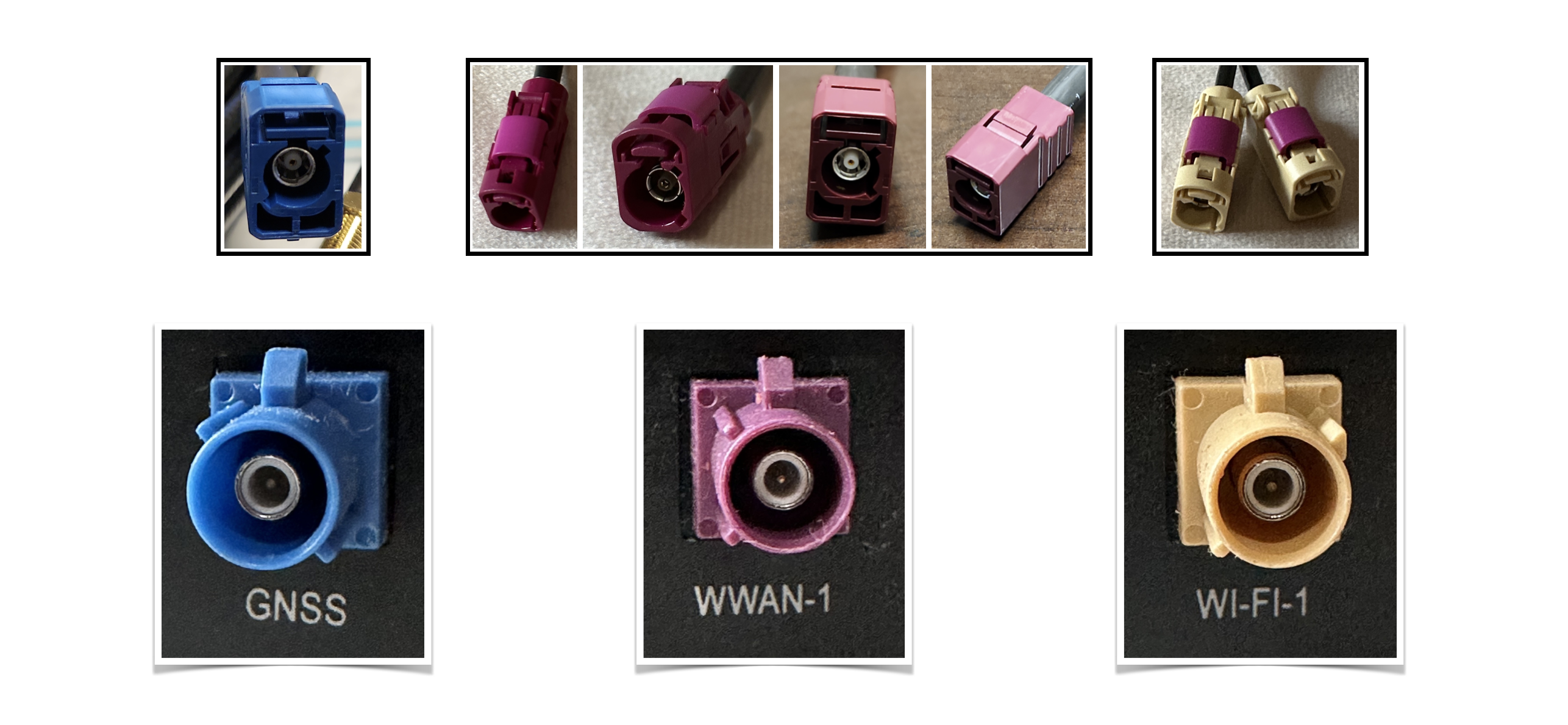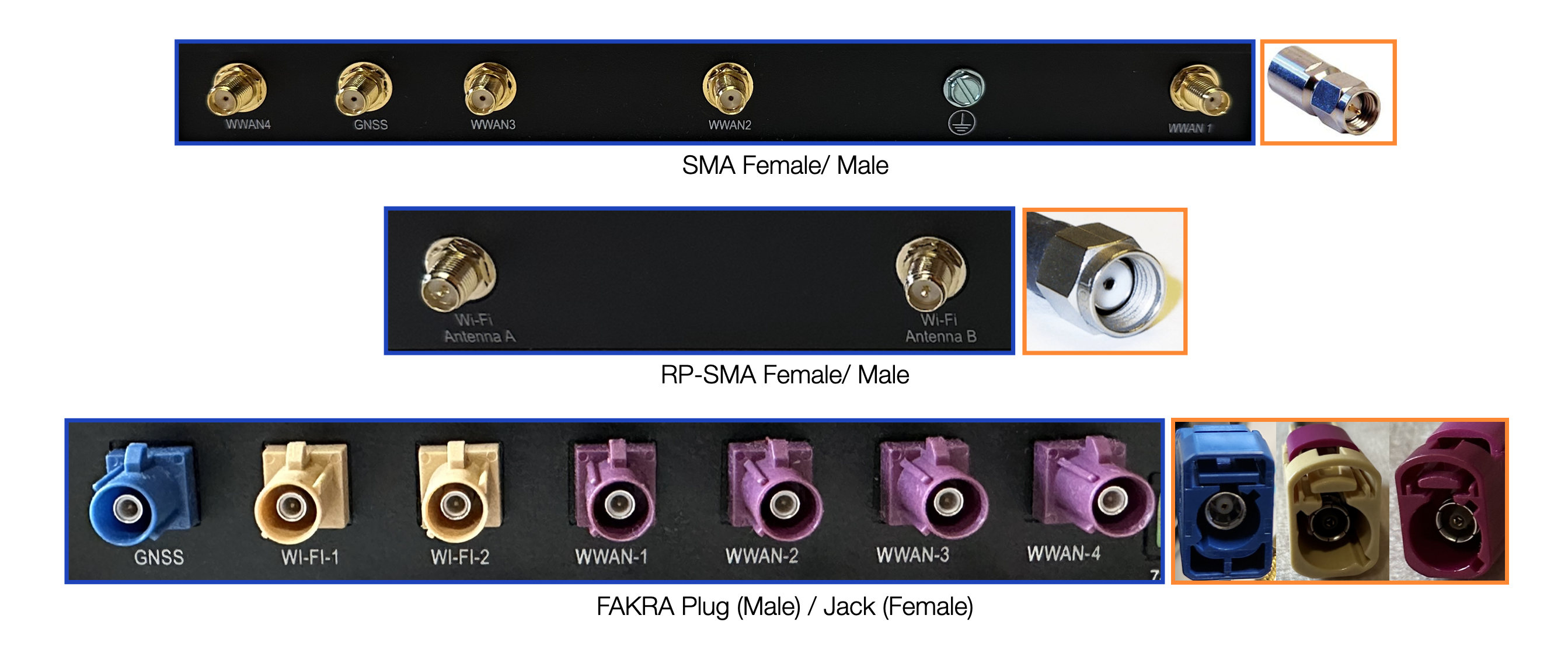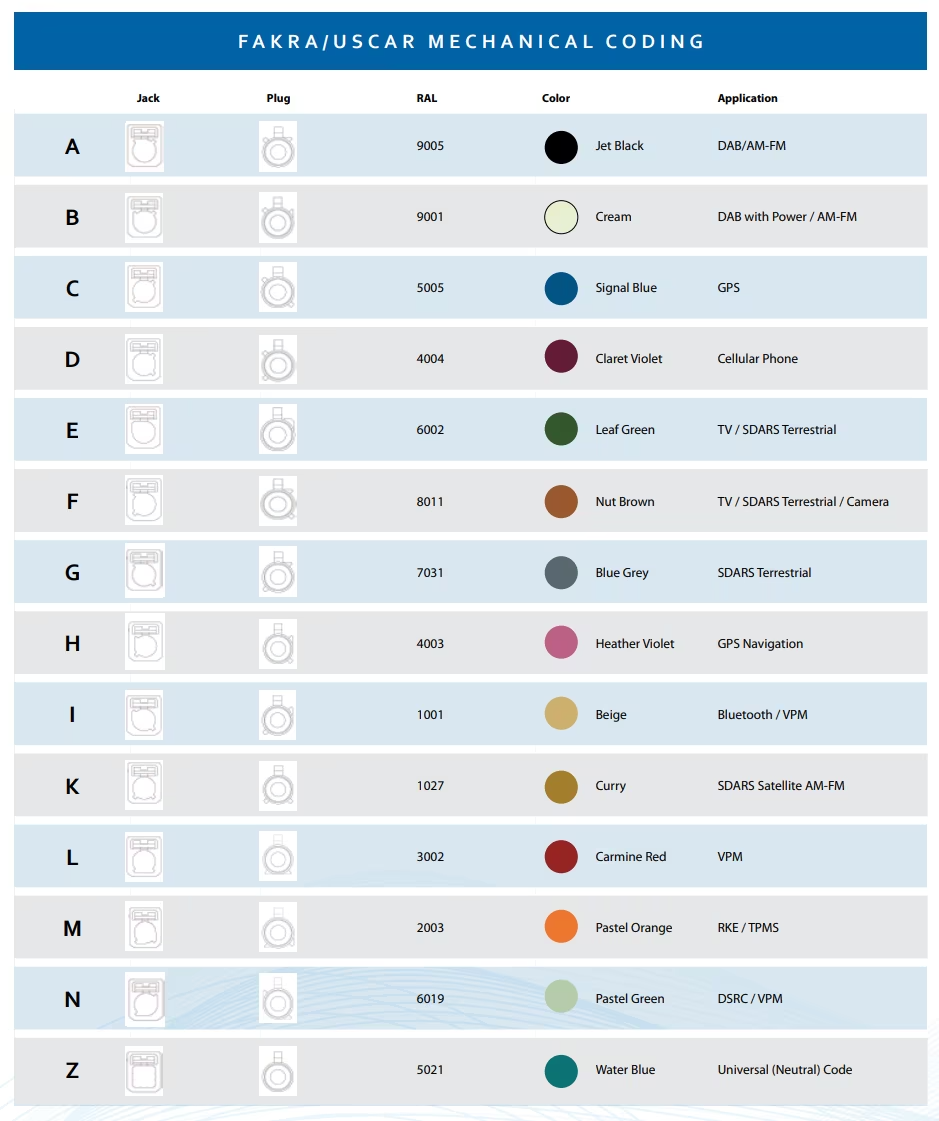
There are so many different connector types when it comes to antenna connections for cellular, satellite, WiFi, GPS/ GNSS, etc. Most of these connectors take time to attach due to their screw on nature, and are sometimes mismatched. In the world of automotive connectivity, FAKRA connectors have been a vital component, mainly because of their ease of use. They simply snap into place and are color coded for simple installation. Now, FAKRA connections are playing a pivotal role in enhancing communication, safety, and telematics applications. Let’s delve into the nuances of FAKRA connectors, exploring their types, benefits, and their integration into routers.
Understanding FAKRA Connectors
FAKRA connectors, an abbreviation for Fachkreis Automobile or Working Group Automobile, are a specialized variant of subminiature version B (SMB) coaxial RF connectors. Developed by Rosenberger and standardized by the German Committee of Automobile Manufacturers, these connectors have been a mainstay in the automotive industry for over two decades.
The Anatomy of FAKRA Connectors
Similar to standard cellular, GPS, and WiFi connections like SMA or RP-SMA, FAKRA connectors consist of a plug and jack design. Unlike SMA, which are metal and screw into place, FAKRA connects via a push-on mechanism enclosed in a durable plastic housing. This push-on feature, accompanied by an audible locking confirmation, ensures a secure connection.
In comparison, you need to ensure you only attach connectors like SMA finger tight – i.e. not so loose that they can come off easily or that the pin doesn’t make contact, but also not so tight that they are too hard to remove. Here’s a closer look at how SMA connectors compare to FAKRA.

FAKRA connectors are color-coded, making identification a breeze. Just note that not all colors or codes will actually match. FAKRA Code Z, for example, is a universal type that can support multiple other connections. The standard encompasses 14 different mechanical layouts, offering versatility in their applications.
Varieties of FAKRA Connectors
The FAKRA standard introduces several subtypes of connectors. The original FAKRA I connectors, primarily used in antenna applications, pave the way for the more advanced FAKRA II connectors. FAKRA II, considered the current base standard, comes in various angles and configurations, including an IP6K9K sealed and weather-resistant version suitable for outdoor applications. Some manufacturers even provide customized and miniaturized versions to meet specific needs.

What Are the Benefits of Using FAKRA Connectors?
The advantages of FAKRA connectors extend beyond their standardized interfaces. Not only are they easy to connect and disconnect, they’re impossible to mismatch. Their operation up to 6 GHz ensures high-frequency performance, making them suitable for applications like telematics, GPS navigation, entertainment systems, Bluetooth, cellular connectivity, keyless entry, climate controls, and radio antennas.
In addition to automotive applications, FAKRA connectors have found a home in non-auto vehicles such as watercraft, motorcycles, and off-highway heavy equipment. They play a crucial role in safety systems, driver assist technologies, vehicle-to-vehicle (V2V) communication, and other in-vehicle networks.
FAKRA Connectors in Routers
As technology continues to evolve, the integration of FAKRA connectors extends beyond automotive applications. These connectors are now making their mark in routers, especially those designed for industrial, vehicle, or outdoor use. The robust design, weather-resistant variants, and high-frequency capabilities of FAKRA connectors make them an ideal choice for ensuring reliable connectivity in outdoor router systems. Their application also extends to industrial process control boxes, machine-to-machine modules, and various Internet of Things (IoT) devices.
Check out some of the routers available now with FAKRA connections:
Conclusion
FAKRA connectors have become integral components in ensuring reliable and standardized connections, particularly in the automotive industry. Their benefits extend beyond the automotive sector, making them a preferred choice in various applications where robust connectivity is crucial. As technology continues to advance, FAKRA connectors are likely to play an increasingly important role in shaping the future of reliable communication systems.


